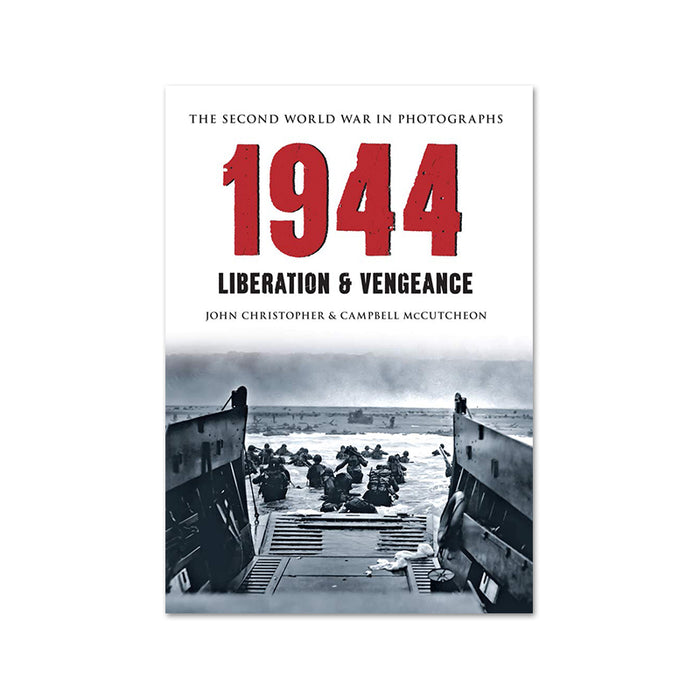1944 Liberation & Vengeance
Sold out
Original price
389.000,00
Current price
299.000,00
1944 saw the largest seaborne invasion ever staged in Operation Overlord. The Allied landings on the beaches of Normandy on D-Day, 6 June 1944, opened the way for the thrust into the occupied countries of northern Europe, in particular France, with the Allies liberating Paris in August. This was the first major milestone in the eastwards drive into the heart of Germany.
Other triumphs in the sixth year of the war included the Red Army regaining Leningrad on the Eastern Front, defeats for the Japanese in the Battle of the Philippine Sea as well as the British advances in Burma, and there were the American landings in Anzio, the taking of Rome, and further landings in Greece. Victory was almost within sight, but it couldn't be taken for granted as the war was entering a new phase and the Nazi war machine still had a sting in its tail. Infuriated by Allied gains, Hitler unleashed the long-promised Vengeance weapons, in particular the V1 flying bomb and the V2 ballistic missile, in the belief that they would turn the tide of the war in Germany's favour. There was also the question of whether Nazi scientists were developing an atomic bomb.
John Christopher and Campbell McCutcheon tell the story of 1944 at war using many rare and often unpublished images, showing the rapidly changing nature of the conflict.
Other triumphs in the sixth year of the war included the Red Army regaining Leningrad on the Eastern Front, defeats for the Japanese in the Battle of the Philippine Sea as well as the British advances in Burma, and there were the American landings in Anzio, the taking of Rome, and further landings in Greece. Victory was almost within sight, but it couldn't be taken for granted as the war was entering a new phase and the Nazi war machine still had a sting in its tail. Infuriated by Allied gains, Hitler unleashed the long-promised Vengeance weapons, in particular the V1 flying bomb and the V2 ballistic missile, in the belief that they would turn the tide of the war in Germany's favour. There was also the question of whether Nazi scientists were developing an atomic bomb.
John Christopher and Campbell McCutcheon tell the story of 1944 at war using many rare and often unpublished images, showing the rapidly changing nature of the conflict.

